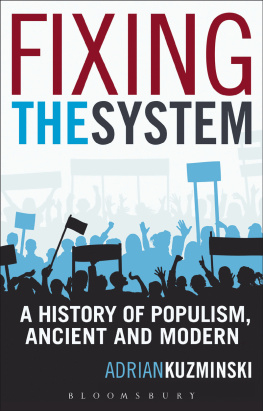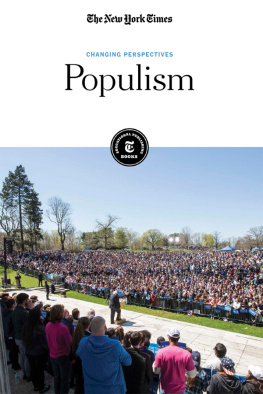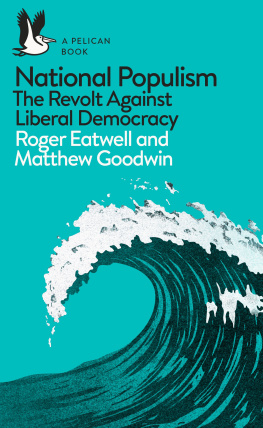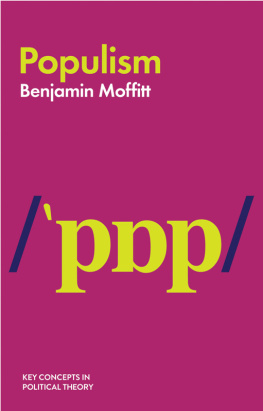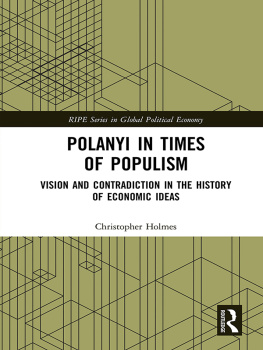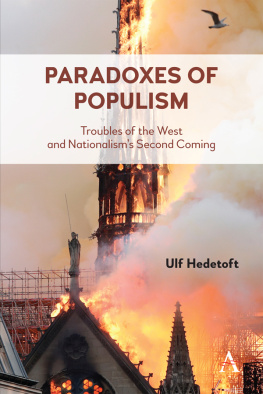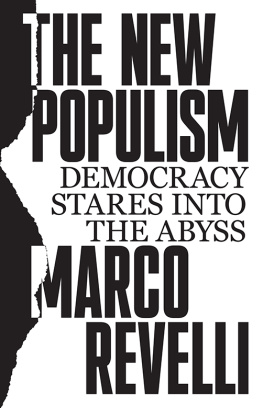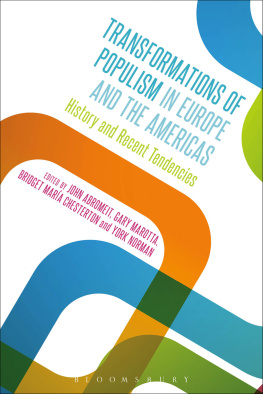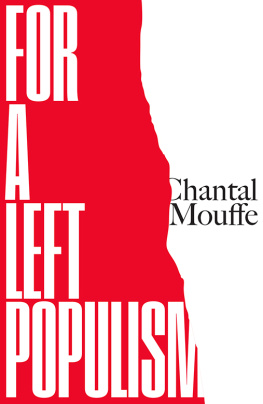Fixing the System
FIXING THE SYSTEM
A History of Populism, Ancient and Modern
Adrian Kuzminski
To my wife,
Tnette,
who made this book possible
Contents
This book had its origins in my discovery of Thomas Jeffersons vision of a confederal democracy based on local assemblies or town meetings, which he called ward republics. In a series of letters written mostly after he left office, he developed the idea that local communities ought to be self-governing direct democracies, and that they ought to be confederated together in a bottom-up system of accountable representative government. Despairing of the ongoing corruption of politics in the United States by big money and special interests, I was intrigued by the practical possibilities of Jeffersons neglected blueprint for accountable democratic decision making. Taking another cue from Jefferson, I came to realize that political democracy requires economic democracythat is, a citizenry in which private property ownership is widespread and concentrations of wealth are minimal. This combination of democracy for all with property for all was the hallmark of nineteenth-century American populism, but I soon discovered that this populist outlook had important precedents extending far back into history, precedents that have been largely overlooked and never, as far as I could determine, integrated into a larger narrative.
At the same time as I pursued my research into the literature and history of populism, I had the opportunity to gain some practical political experience working in local advocacy groupsas a local public official, as a candidate for local office, and in party politics in both the Green and Democratic Parties (including a stint on the national platform committee of the Green Party). My often frustrating political experience, combined with my research, brought me to the conclusion that the populist program of decentralizing political and economic powerthough marginalized in recent timescontinues to hold the greatest promise for ensuring not only political and economic justice, but a sustainable social and natural world.
The current narrow box of mainstream left-wing/right-wing debate only perpetuates the presumption of elitist political and economic power, and prevents any serious consideration of increasingly needed alternatives. Populism is the genuine third way of politics, I concluded, transcending both the big government policies of the Left and the big business policies of the Right. By decentralizing political and economic power, populism aims to replace top-down with bottom-up politics. This book is an attempt to present populism in its historical context, to retrieve it from the oblivion into which it has been thrust by its opponents, and to demonstrate the promise it holds for the future. At a time when our political process no longer represents ordinary citizens, when disparities of wealth and poverty are enormous and increasing, when irresponsible hubris goes increasingly unchecked among government and corporate leaders, when criminal wars of aggression undermine our international integrity, and when the environmental costs of economic growth threaten the planet itself, it is more important than ever to find alternative and more promising ways of thinking about our political and economic problems. I focus on the history of populism in the West only because of the limitations of my own scholarship and experience. I leave it to others to write the history of populism in Asia, Africa, Latin America, and elsewhere.
How far do populists go? By property for all populists mean the widespread personal ownership of private capital sufficient to establish the relative economic independence of citizens vis--vis one another. Where none are rich enough to dominate others economically or poor enough to be so dominated, populists argue, the public interest rather than private interest is likely to be served. In an earlier agrarian era, populists called for the distribution of land (then the principal form of capital) among citizens, while in modern commercial economies they propose to distribute credit (now the principal form of capital) directly to citizens through various systems of public credit. The most comprehensive system of public creditdeveloped by the nineteenth-century American populist Edward Kelloggproposed to replace our privatized financial system with a decentralized but state-regulated monetary system based on direct low-interest loans to citizens.
By democracy for all populists mean full and direct participation in empowered local citizen assembliessuch as those found in ancient city-states, and in the town meetings of colonial and early federal Americasuitably confederated together into broader accountable representative bodies, as Jefferson outlined. In calling for a wide distribution and decentralization of both wealth and politics, populism offers a radical but plausible reform of the political and economic system found today in the United States and most other developed countries, where credit and property remain highly concentrated in private hands, and where representatives chosen in impersonal mass elections frustrate democracy by serving private interests rather than the public good. Populism seeks to complete a half-begun American revolution by establishing the full measure possible of individual political and economic liberty. In our time of crisis, this pragmatic program for fundamental social reform deserves serious consideration.
I am grateful to Hartwick College, where I have been resident scholar in philosophy since 1997, for giving me the academic setting necessary to undertake research for this book. I would like to thank the following persons, who aided or encouraged this project in varying ways, sometimes unbeknownst to themselves: Stanley Konecky, Sylvia Tesh, George McGuire, Tony Gronowicz, Howie Hawkins, Michael B. Millard, Stefan Kuzminski, Jan Kuzminski (who gave me my title), my wife Tnette Kuzminski, and lastly, David Barker, my editor at Continuum.
Chapter One
The Insight of Phaleas
The word democracy literally means the rule of the people, from the ancient Greek kratio, to rule, and demos, the people. This popular self-governance is achieved in its fullest sense, I shall argue, by more or less equal citizens meeting in local, face-to-face, decision-making assemblies in which they are free to participate equally, fully, and directly. The word democracy is widely misused in our time, most commonly to indicate any kind of political system claiming popular sovereignty on the basis of elections or plebiscites, even though such periodic mass voting reduces citizen participation to a minimum while giving elected officials wide latitude for action with minimal accountability to their constituents. I use the word democracy in its original, stronger, and fuller sense of direct rule by the people; that is, the right of unimpeded participationminimally, historically by heads of households, and maximally, by all adult community membersin self-government through empowered face-to-face assemblies of the kind found, among other places, in most kinship clans and tribes worldwide, in numerous ancient and medieval city-states, and in various modern assemblies such as New England town meetings. Direct democracy was arguably the first form of human polity, the natural embodiment of social justice, a once universal condition manifest in kinship societies around the world. It is essential to democratic societies, I shall argue, that their members do not differ significantly in personal wealth and power, not enough for some to control others. But democracy has been uprooted almost everywhere by thousands of years of war, conquest, and appropriation, with wealth and power conspicuously concentrated in relatively few hands. Though democracy in the postkinship state societies we call civilizations has been a rare exception, it remains an ever-present possibility, provided that the inequalities in wealth characteristic of war-based state societies can be significantly narrowed. This work hopes to contribute to that possibility.

